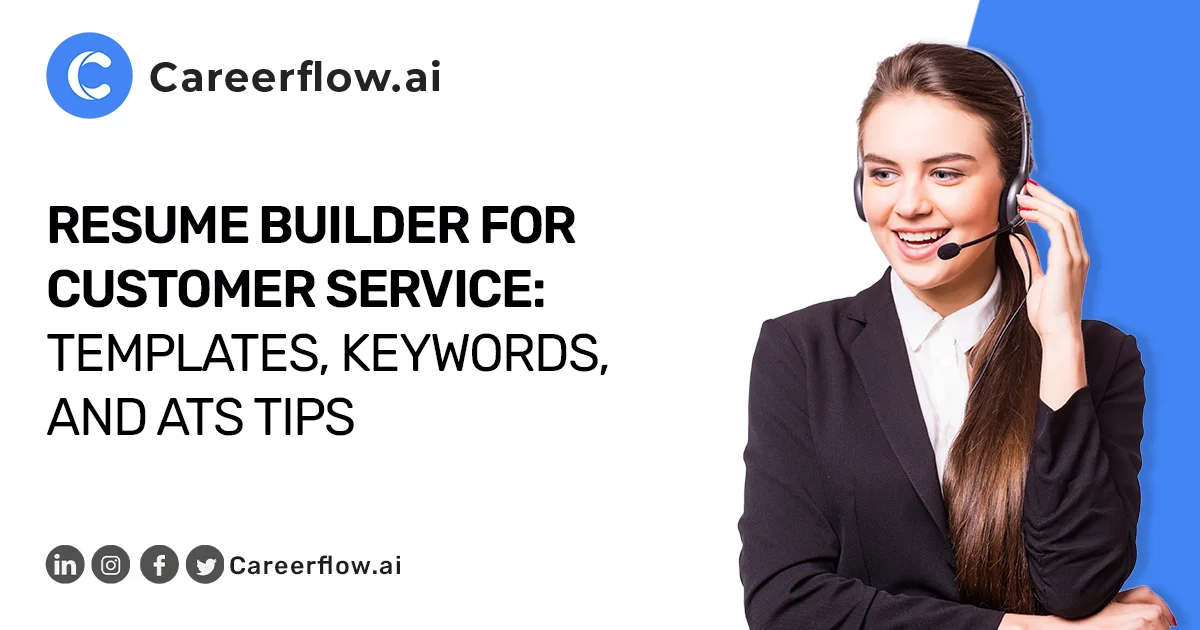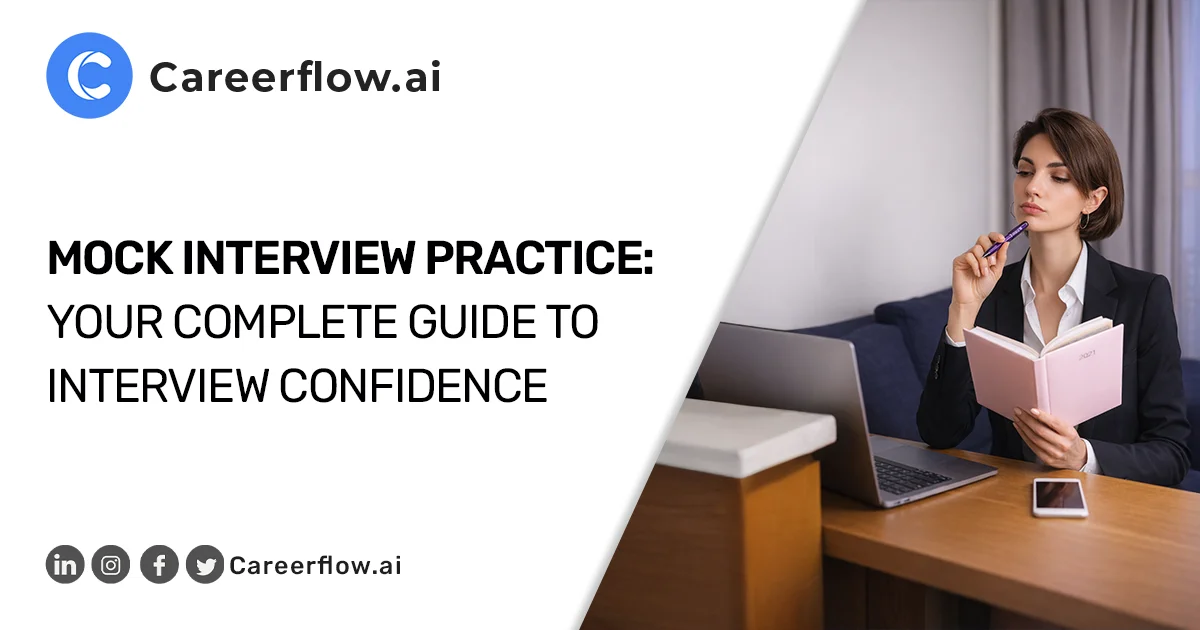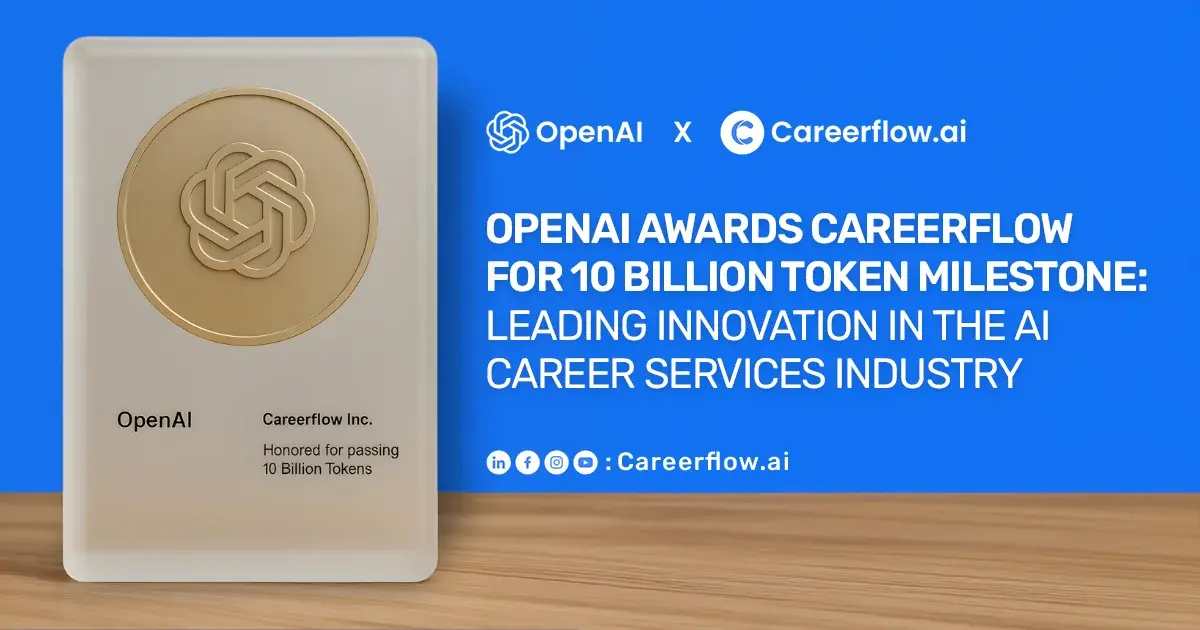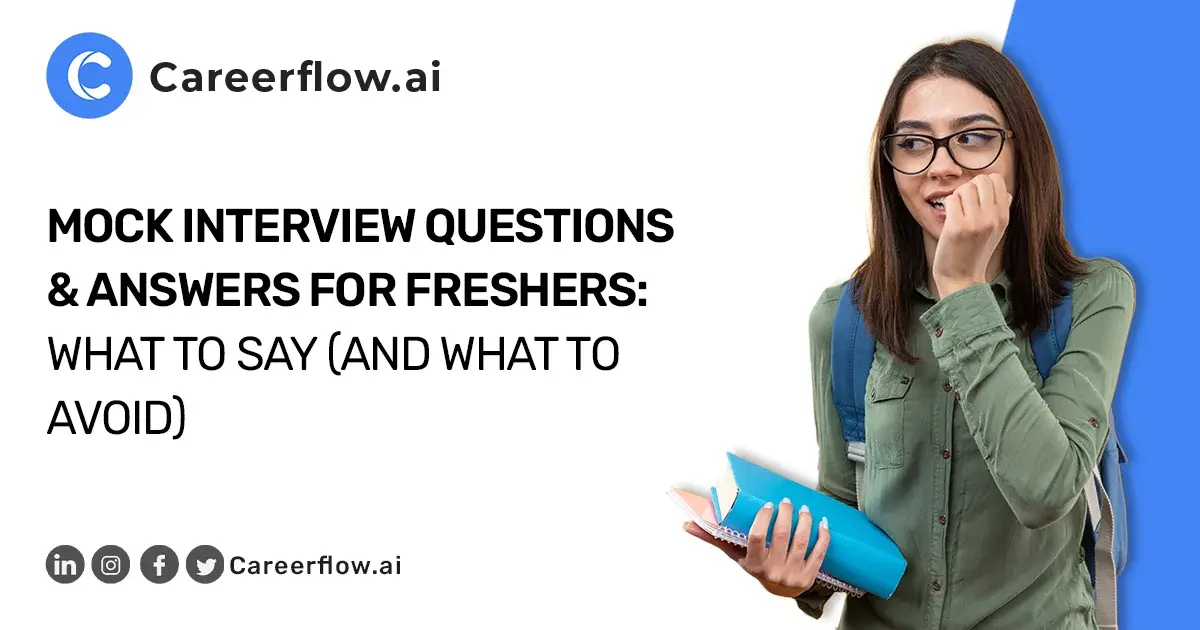Landing your dream job often hinges on acing the interview. Interviews are your chance to showcase your skills, experience, and enthusiasm to potential employers. They're a two-way street, allowing you to learn about the company culture and assess if it's a good fit for you. Mock interviews are valuable for job seekers in today's competitive market. They provide an opportunity to practice and refine interview skills, as well as gain valuable feedback and insight into how to improve.
Mock interviews simulate real-world interview scenarios, providing a safe space to practice and refine your interview skills. By participating in mock interviews, you'll gain valuable experience, receive constructive feedback, and ultimately, feel more confident and prepared for the real deal. From boosting confidence to reducing anxiety, this blog highlights the top 10 benefits of mock interviews and why they should be an essential part of your job search strategy.
What is a Mock Interview?
A mock interview is a simulation or practice session designed to replicate a real job interview. It provides a safe and controlled environment for you to hone your interviewing skills and gain confidence before the big day.
Here's a breakdown of the key aspects of a mock interview:
- Purpose: Mock interviews help you in several ways. They allow you to:some text
- Get familiar with the interview format and structure.
- Practice answering common interview questions.
- Receive constructive feedback on your communication skills, body language, and overall presentation.
- Reduce interview anxiety by feeling more prepared.
- Structure: A mock interview typically involves a scenario where one person acts as the interviewer and the other acts as the interviewee. The interviewer might use a set of predetermined questions relevant to the job you're targeting, or they might tailor them to your experience and background.
- Realistic Simulation: For maximum benefit, a mock interview should strive to be as realistic as possible. This could involve:some text
- Dressing professionally, as you would for a real interview.
- Holding the mock interview in a quiet, professional setting.
- Using video conferencing to simulate a remote interview scenario (if applicable).
Where to Find Mock Interviews
Mock interviews can be conducted in various settings. Here is an option to consider:
✅ Online Resources: AI Mock Interview by Careerflow
Practice role and company-specific interview questions with Careerflow's AI mock interview tool. Get real-time feedback from your private, judgment-free AI interview coach. Start your mock interview today!
How it works👇:
- Registration and Profile Creation: Start by creating an account on the CareerFlow AI platform. This involves providing basic information such as name, email address, etc.
- Selecting Interview Type: You will be prompted to choose the type of interview you want to practice, such as behavioral interviews, technical interviews, case interviews, or industry-specific interviews.
- Customization: You will have the option to customize the mock interview experience by specifying parameters such as the industry, job role, or level of difficulty you want to simulate.
- Mock Interview Session: You will participate in a simulated interview session. This could involve interacting with an AI through video or text-based communication.
- Interview Simulation: This platform simulates a realistic interview scenario, presenting users with questions similar to those they might encounter in a real interview. Questions may be generated based on the chosen interview type and parameters.
- Performance Metrics: You will also be provided with performance metrics and insights after the mock interview session. This could include scores based on various criteria, strengths and areas for improvement, and recommendations for further practice.
- Review and Analysis: After the mock interview session, you can review a recording or transcript of your interview performance. This allows you to reflect on your responses, identify areas for improvement, and learn from the experience.

Top 10 Benefits of Mock Interviews
1. Confidence Booster
Imagine walking into an interview feeling prepared and collected. You recognize the question format, you have crafted compelling responses, and your anxiety feels manageable. This is the power of mock interviews.
Benefit: Mock interviews simulate the interview experience, reducing anxiety and boosting confidence.
- You become familiar with the format, the environment, and the types of questions you might encounter.
- This familiarity breeds a sense of control, allowing you to focus on showcasing your skills rather than worrying about the unknown.
Actionable Tips:
- Choose a realistic mock interview setting. If the interview will be virtual, conduct your mock interview on a video conferencing platform. If it's in person, find a quiet, professional space.
- Dress professionally, as you would for the actual interview. This will not only elevate your confidence but also help you get into the right mindset.
- Practice positive self-talk. Remind yourself of your strengths and accomplishments to counter negative pre-interview jitters.
2. Practice Makes Perfect
Just like any other skill, the art of interviewing improves with practice. Mock interviews provide a valuable opportunity to hone your responses, ensuring they are clear and concise, and effectively communicate your value to the employer.
Benefit: Mock interviews allow you to refine your answers to common interview questions.
- You can practice tailoring your responses to the specific job description and company culture, showcasing how your skills and experience align perfectly with their needs.
- This targeted approach demonstrates your preparation and genuine interest in the opportunity.
Actionable Tips:
- Research common interview questions for your target position. You can find them online through industry-specific resources or use the job description itself as a guide.
- Prepare a list of questions to ask the interviewer. This demonstrates your curiosity and initiative, making you stand out from other candidates.
- Practice the STAR method for behavioral interview questions (Situation, Task, Action, Result). This structure ensures clear and impactful answers that highlight your achievements.
3. Mastering Tricky Questions
Interviews can throw some curveballs your way. Maybe it's a challenging behavioral question that requires in-depth self-reflection, or a situational scenario that pushes your critical thinking skills. Mock interviews offer a safe space to tackle these challenging questions and develop effective responses.
Benefit: Mock interviews help you anticipate and prepare for tricky questions.
- You can experiment with different approaches to see what resonates best.
- By receiving feedback, you can refine your responses and learn how to handle unforeseen situations with composure and confidence.
Actionable Tips:
- Discuss potential challenging questions with your mock interviewer beforehand. This could be based on common "tough question" lists or questions you anticipate based on the job description.
- Practice "brainstorming" different approaches to answer tricky questions. This can help you explore various angles and develop a comprehensive response that addresses all aspects.
- Don't be afraid to ask for clarification if you don't understand a question. This demonstrates your professionalism and desire to truly understand what the interviewer is looking for.
4. Sharpening Communication Skills
Effective communication goes beyond just the content of your answers. Your nonverbal cues, tone of voice, and overall delivery play a crucial role in conveying your personality and professionalism. Mock interviews provide a platform to refine your communication skills and ensure a polished presentation.
Benefit: Mock interviews help you improve your communication style.
- You can practice active listening by maintaining eye contact and responding thoughtfully to the interviewer's questions.
- You can learn to articulate your thoughts clearly and concisely, avoiding filler words and rambling.
Actionable Tips:
- Focus on active listening. Pay close attention to the interviewer's questions and ask clarifying questions if needed. This demonstrates your engagement and ability to follow instructions.
- Speak clearly and confidently. Project your voice without speaking too fast or too slow. Vary your vocal inflection to keep the conversation engaging.
- Pay attention to your nonverbal cues. To emphasize your points, maintain good posture, make eye contact, and use appropriate gestures.
5. Body Language
Benefits: Strong nonverbal cues can significantly impact your interview presence. Mock interviews allow you to:
- Practice good posture: Sit up straight, avoid slouching, and project an air of professionalism.
- Maintain eye contact: This shows confidence, engagement, and genuine interest.
- Use appropriate gestures: Avoid fidgeting, but use natural hand movements to emphasize points.
Actionable Tips:
- Record yourself during your mock interview. Watch it back to identify areas for improvement in posture, eye contact, and gestures.
- Ask your mock interviewer for specific feedback on your nonverbal communication.
- Practice beforehand in front of a mirror or with a friend.
6. Behavioral Interview Preparation
Benefits: Behavioral interviewing is a common technique used to assess your past experiences and predict future performance. Mock interviews help you:
Master the STAR method:
- Situation: Briefly describe the context of the challenge you faced.
- Task: Define your specific role and responsibilities in the situation.
- Action: Explain the specific actions you took to address the challenge.
- Result: Highlight the positive outcome you achieved through your actions.
- Craft compelling stories: Use vivid language and specific examples to showcase relevant skills and accomplishments.
Actionable Tips:
- Research common behavioral interview questions related to the position you're targeting.
- Prepare STAR-method responses for several potential behavioral questions beforehand.
- During the mock interview, practice delivering your stories in a clear, concise, and impactful manner.
7. Tailor Your Responses
Benefits: Customizing your responses demonstrates genuine interest in the specific role and company. Mock interviews help you:
- Analyze the job description: Identify key skills, experience, and requirements sought by the employer.
- Highlight relevant experiences: Connect your skills and accomplishments to the specific needs of the position.
- Research the company culture: Tailor your responses to demonstrate how you would be a good fit for their environment.
Actionable Tips:
- Before the mock interview, thoroughly research the company and the specific job description.
- Craft customized answers that showcase how your skills and experiences directly address the company's needs.
- Practice weaving in details about the company culture to demonstrate your understanding and alignment.
8. Identify Weaknesses, Conquer Strengths
Benefits: Mock interviews offer a valuable opportunity for self-assessment. They help you:
- Expose areas for improvement: Identify weaknesses in your interview skills, such as rambling answers, lack of clarity, or nervousness.
- Highlight your strengths: Gain confidence by recognizing your strong communication skills, relevant experience, or impressive problem-solving abilities.
Actionable Tips:
- Ask your mock interviewer for honest feedback on your overall performance.
- Identify specific areas where you can improve – it could be answer structure, communication style, or handling tough questions.
- Develop targeted strategies to address your weaknesses, such as practicing public speaking or rehearsing answers to commonly asked challenging questions.
- Refine your strengths by incorporating them into your interview strategy and highlighting them throughout the conversation.
- By strategically approaching mock interviews and applying these actionable tips, you can significantly enhance your interview skills, boost your confidence, and land your dream job.
9. Develop Interview Strategies
Benefits: Mock interviews provide a safe space to experiment and refine your interview approach. You can practice:
- Strong openings: Craft a confident introduction that highlights your enthusiasm and makes a memorable first impression.
- Exhibit passion: Show genuine interest in the role and the company.
- Effective negotiation: Practice negotiating salary, benefits, and other aspects of the offer confidently.
Actionable Tips:
- Before the mock interview, brainstorm different ways to be strong and showcase your enthusiasm for the position.
- Practice role-playing different negotiation scenarios related to salary, benefits, or work arrangements.
- Ask your mock interviewer for feedback on your opening, enthusiasm demonstration, and negotiation skills. Use their insights to improve your approach.
10. Time Management
Benefits: Mock interviews help you master time management in an interview setting. You can learn to:
- Structure responses effectively: Use the STAR or CAR method (Context, Action, Result) to keep your answers focused and concise.
- Stay focused on the question: Avoid rambling or going off on tangents.
- Deliver impactful points in a limited time: Highlight key achievements and skills within the allotted time frame.
Actionable Tips:
- Time yourself during practice responses. Aim to deliver clear, concise answers within the typical response window (1-2 minutes).
- Ask your mock interviewer to interrupt you if your answers are too long or go off on tangents.
- Practice actively listening to the question and crafting responses that directly address it.
- By incorporating these actionable tips into your mock interview sessions, you can refine your interview strategy, master time management, and confidently negotiate your offer. Remember, the more you practice, the more comfortable and polished you'll be in an actual interview setting, increasing your chances of landing your dream job.
Conclusion
In conclusion, participating in mock interviews offers a number of benefits for job seekers. From improving interview skills and boosting confidence to receiving constructive feedback and gaining a realistic job preview, mock interviews provide invaluable support in the pursuit of a successful career. By incorporating this practice into your job search strategy, you can enhance your chances of landing your dream job and avoid wasting time and effort on misaligned opportunities. So, if you want to excel in interviews and make well-informed career decisions, consider taking advantage of Careerflow's AI Mock interview.
Don't miss out on this valuable resource that can propel your professional growth and bring you one step closer to achieving your career goals✨.


.webp)

.webp)




